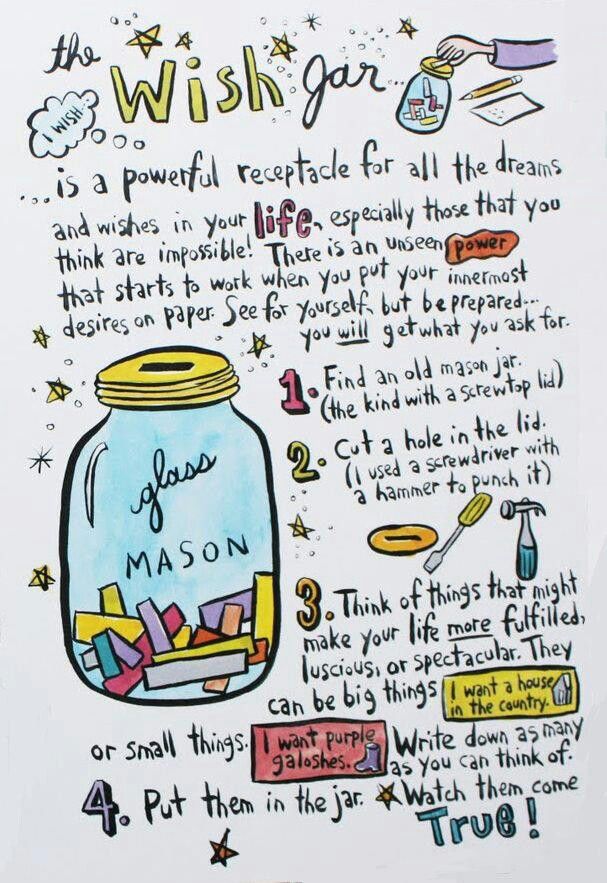Adult Manifestations of Childhood Sexual Abuse
Adult manifestations of childhood sexual abuse include flashbacks, anxiety, depression, and sexual dysfunction, among others. Childhood sexual abuse often has long-lasting effects on survivors, impacting their mental, emotional, and physical well-being in adulthood.
Understanding these manifestations can be crucial in offering appropriate support and interventions for survivors of childhood sexual abuse. With that in mind, let’s explore the various adult manifestations of childhood sexual abuse in more detail.

Credit: www.semanticscholar.org
1. Physical Health Implications
Adult manifestations of childhood sexual abuse can have profound impacts on physical health. The experiences of abuse during childhood can lead to various long-term health implications in adulthood.
1.1 Chronic Pain
Chronic pain is a common physical health issue that adults who have experienced childhood sexual abuse may face. The trauma from the abuse can often manifest as persistent physical pain, affecting their daily activities.
1.2 Sexual Dysfunction
Sexual dysfunction is another consequence of childhood sexual abuse in adulthood. It can lead to difficulties in intimacy, relationships, and overall sexual well-being, impacting one’s mental and emotional health.
1.3 Sleep Disorders
Sleep disorders, such as insomnia or nightmares, are commonly reported by adults who have a history of childhood sexual abuse. The trauma can disrupt their sleep patterns, leading to chronic fatigue and other health issues.
1.4 Substance Abuse
Adult survivors of childhood sexual abuse may turn to substance abuse as a way to cope with the trauma they experienced. This can contribute to a cycle of addiction and further complicate their physical and mental well-being.
2. Mental Health Effects
2. Mental Health Effects
2.1 Posttraumatic Stress Disorder (ptsd)
Adults who have experienced childhood sexual abuse often face the harrowing impact of Posttraumatic Stress Disorder (PTSD). The traumatic events from childhood can lead to intrusive memories, flashbacks, nightmares, and severe emotional distress.
2.2 Depression And Anxiety
The long-term mental health repercussions of childhood sexual abuse commonly manifest as depression and anxiety in adulthood. Individuals may struggle with persistent feelings of hopelessness, overwhelming sadness, and constant worry or fear.
2.3 Dissociation And Disassociation
Adult survivors of childhood sexual abuse may exhibit signs of dissociation and disassociation as a coping mechanism. This can lead to feelings of detachment, a distorted sense of reality, and disconnection from one’s own emotions and experiences.
2.4 Borderline Personality Disorder (bpd)
Borderline Personality Disorder can often be linked to childhood sexual abuse, as individuals may struggle with unstable moods, impulsive behavior, tumultuous relationships, and an unstable sense of self.
3. Relationship Difficulties
3. Relationship Difficulties
3.1 Trust Issues
Adult survivors of childhood sexual abuse often struggle with trust issues in their relationships. The violation of trust during their formative years can lead to difficulties in believing and relying on others, making it challenging to form healthy connections.
3.2 Intimacy Challenges
Intimacy challenges are a common manifestation of childhood sexual abuse, as survivors may find it hard to engage in emotional and physical closeness. This can affect romantic relationships and friendships, impeding the ability to develop deep, meaningful connections.
3.3 Difficulty Establishing Boundaries
Difficulty establishing boundaries is a significant issue for survivors of childhood sexual abuse, as they may struggle to assert their limits and assertiveness in relationships. This can lead to feelings of being taken advantage of or manipulated.
3.4 Fear Of Vulnerability
Survivors often experience a fear of vulnerability due to their past trauma, making it difficult for them to open up and express their emotions in relationships. This fear can hinder the development of trust and intimacy, further impacting their ability to form healthy connections.

Credit: slideplayer.com
4. Impact On Self-esteem And Self-worth
Adult manifestations of childhood sexual abuse can deeply impact an individual’s self-esteem and self-worth, leading to long-lasting psychological challenges.
4.1 Shame And Guilt
Shame and guilt often plague survivors of childhood sexual abuse, making them feel unworthy and responsible for the traumatic experiences they endured.
4.2 Self-blame
Survivors may struggle with self-blame, internalizing the abuse and believing they deserved or provoked it, further damaging their self-esteem.
4.3 Negative Body Image
The experience of childhood sexual abuse can contribute to a negative body image, leading survivors to feel disconnected from their physical selves and experiencing self-loathing.
4.4 Perceived Lack Of Control
Survivors may struggle with a perceived lack of control, feeling powerless in their lives and relationships due to the violation of boundaries in their past.
5. Impaired Emotional Regulation
Childhood sexual abuse can have long-lasting effects on an individual’s emotional regulation, affecting their ability to manage and express emotions in a healthy way. This impairment can manifest in various ways, including excessive anger and aggression, emotional numbing, hypervigilance, and difficulty in expressing emotions. Understanding these adult manifestations is crucial in providing support and healing to survivors.
5.1 Anger And Aggression
Adult survivors of childhood sexual abuse may often struggle with intense anger and aggression. This can be a result of suppressed emotions, unresolved trauma, or feelings of powerlessness experienced during the abuse. They may find it challenging to control their anger, leading to outbursts and destructive behavior. It’s important to recognize that this anger is a valid response to the trauma endured and provide appropriate outlets for the survivor to express and manage their emotions.
5.2 Emotional Numbing
Emotional numbing is another common manifestation of impaired emotional regulation among adult survivors. They may experience a sense of detachment and disconnection from their emotions, often as a defense mechanism to protect themselves from further pain. This emotional numbness can impact their ability to feel joy, love, or even sadness, making it difficult to form and maintain healthy relationships. Helping survivors reconnect with their emotions and providing a safe space for emotional expression is crucial in their healing journey.
5.3 Hypervigilance
Hypervigilance, a state of heightened awareness and hyper-alertness, is often seen in individuals who have experienced childhood sexual abuse. Survivors may constantly feel on guard, expecting potential threats or danger in their surroundings. This constant state of hypervigilance can be exhausting and anxiety-inducing. It’s important to create a supportive environment that helps survivors feel safe and secure, allowing them to gradually reduce their hypervigilance and regain a sense of control over their lives.
5.4 Difficulty In Expressing Emotions
Adult survivors of childhood sexual abuse may face significant challenges in expressing their emotions. They may struggle to put their feelings into words or fear being judged or invalidated if they do. This difficulty can lead to emotional bottling up, which can have detrimental effects on their mental and physical well-being. Providing survivors with therapeutic interventions, such as counseling or art therapy, can help them navigate their emotions and find healthier ways to express themselves.

Credit: endcan.org
6. Impact On Sexual Identity
6. Impact on Sexual Identity
6.1 Confusion And Identity Crisis
Adult manifestations of childhood sexual abuse often lead to confusion and an identity crisis. Survivors may struggle to form a clear understanding of their sexual identity, feeling unsure of their preferences and desires. This can result in difficulty establishing healthy relationships and engaging in consensual sexual activities.
6.2 Sexual Orientation Challenges
The trauma of childhood sexual abuse can also manifest in challenges related to sexual orientation. Survivors may experience conflicted feelings about their sexual orientation, potentially questioning their attraction towards certain genders. These challenges can lead to feelings of isolation and self-doubt.
6.3 Sexual Avoidance
Another common manifestation of childhood sexual abuse in adulthood is sexual avoidance. Individuals may develop aversions to sexual activity, intimacy, and physical touch due to the trauma they experienced. This can significantly impact their ability to form and maintain intimate relationships.
6.4 Hypersexuality
Conversely, some survivors of childhood sexual abuse may exhibit hypersexuality as a coping mechanism. This excessive focus on sexual behavior and activities can be a way to numb emotional pain or seek validation. It often leads to risky behaviors and unhealthy relationships.
7. Challenges In Parenting
Parenting as an adult survivor of childhood sexual abuse presents unique challenges that can impact a person’s ability to care for their own children.
7.1 Fear Of Repeating The Abuse
Adult survivors may struggle with the fear of repeating the abuse they endured, leading to hesitancy in setting boundaries or recognizing signs of abuse.
7.2 Trusting Others With Children
It can be difficult for survivors to trust others with their children, fearing that they may not be adequately protected or that history may repeat itself.
7.3 Difficulty Bonding With Children
Survivors may experience difficulty in bonding with their own children, impacting their ability to form healthy attachments and nurture relationships.
7.4 Parenting Style Challenges
Survivors may struggle with establishing a consistent and effective parenting style, leading to confusion and inconsistencies in discipline and guidance.
8. Treatment And Healing
8. Treatment and Healing
8.1 Therapy And Counseling Options
Seeking professional therapy can be hugely beneficial for individuals dealing with the adult manifestations of childhood sexual abuse. Therapists and counselors provide a safe space for survivors to explore and process their experiences, assisting them in building coping mechanisms and healing from the lingering trauma.
8.2 Support Groups And Peer Networks
Engaging with support groups and peer networks offers survivors a sense of community and shared understanding. Participating in group discussions and activities can help individuals feel less alone and empowered in their healing journeys.
8.3 Self-care Practices
Implementing self-care practices is crucial in nurturing mental and emotional well-being. Self-soothing activities such as meditation, journaling, and mindfulness exercises can help survivors reconnect with themselves and promote inner peace.
8.4 Building Resilience And Positive Coping Strategies
Developing resilience and positive coping strategies is key for thriving after childhood sexual abuse. Building a supportive network, fostering healthy relationships, and exploring new hobbies can all contribute to strengthening resilience and moving forward in a positive direction.
Conclusion
The effects of childhood sexual abuse can linger into adulthood, impacting mental health and relationships. It is crucial to seek therapy and support to heal from past trauma. Understanding the manifestations can lead to self-awareness and empowerment in the journey towards healing and recovery.
Prioritizing self-care and seeking professional help are key steps in this process.






